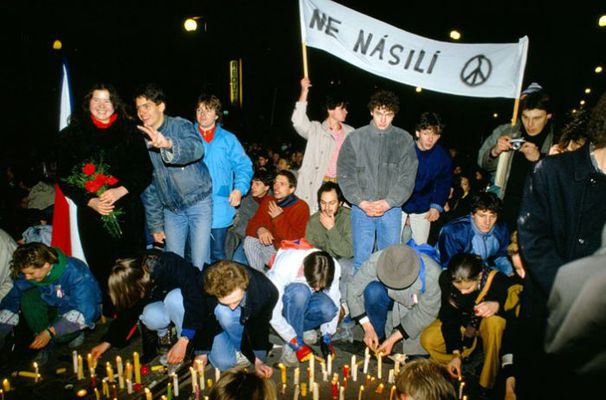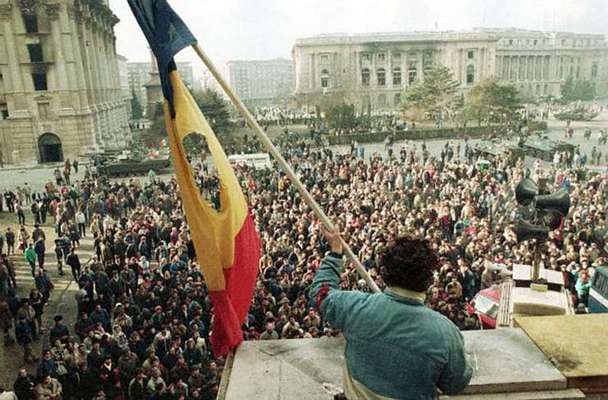1989 Revolutions
REVOLUTIONS OF 1989.docx
The Revolutions of 1989 formed part of a revolutionary wave in the late 1980s and early 1990s that resulted in the end of communist rule in Central and Eastern Europe and beyond. The period is sometimes called the Fall of Nations or the Autumn of Nations, a play on the term Spring of Nations that is sometimes used to describe the Revolutions of 1848.
The events of the full-blown revolution first began in Poland in 1989 and continued in Hungary, East Germany, Bulgaria, Czechoslovakia and Romania.


One feature common to most of these developments was the extensive use of campaigns of civil resistance, demonstrating popular opposition to the continuation of one-party rule and contributing to the pressure for change. Romania was the only Eastern Bloc country whose citizens overthrew its Communist regime violently. Protests in Tiananmen Square (April–June 1989) failed to stimulate major political changes in China, but influential images of courageous defiance during that protest helped to precipitate events in other parts of the globe. On 4 June 1989, the trade union Solidarity won an overwhelming victory in a partially free election in Poland, leading to the peaceful fall of Communism in that country in the summer of 1989. Also in June 1989, Hungary began dismantling its section of the physical Iron Curtain, leading to an exodus of East Germans through Hungary, which destabilized East Germany. This led to mass demonstrations in cities such as Leipzig and subsequently to the fall of the Berlin Wall in November 1989, which served as the symbolic gateway to German reunification in 1990.
The Soviet Union dissolved in December 1991, resulting in eleven new countries (Armenia, Azerbaijan, Belarus, Georgia, Kazakhstan, Kyrgyzstan, Moldova, Tajikistan, Turkmenistan, Ukraine and Uzbekistan), which had declared their independence from the Soviet Union in the course of the year, while the Baltic states (Estonia, Latvia and Lithuania) regained their independence in September 1991. The rest of the Soviet Union, which constituted the bulk of the area, became the Russian Federation in December 1991. Albania and Yugoslavia abandoned Communism between 1990 and 1992. By 1992, Yugoslavia had split into five successor states, namely Bosnia and Herzegovina, Croatia, Macedonia, Slovenia and the Federal Republic of Yugoslavia, which was later renamed Serbia and Montenegro in 2003 and eventually split in 2006 into two states, Serbia and Montenegro. Serbia was then further split with the breakaway of the partially recognized state of Kosovo in 2008. Czechoslovakia dissolved three years after the end of Communist rule, splitting peacefully into the Czech Republic and Slovakia in 1992. The impact of these events was felt in many socialist countries. Communism was abandoned in countries such as Cambodia (1991), Ethiopia (1990), Mongolia (which in 1990 democratically re-elected a Communist government that ran the country until 1996) and South Yemen (1990).
During the adoption of varying forms of market economy, there was a general decline in living standards for many former Communist countries. Political reforms were varied, but in only four countries were Communist parties able to retain a monopoly on power, namely China, Cuba, Laos and Vietnam (North Korea went through a constitutional change in 2009 that made it nominally no longer Communist, but still de facto organised on Stalinist lines). Many communist and socialist organisations in the West turned their guiding principles over to social democracy and democratic socialism. Communist parties in Italy and San Marino suffered and the reformation of the Italian political class took place in the early 1990s. In South America, the Pink tide began with Venezuela in 1999 and swept through the early 2000s. The European political landscape changed drastically, with several former Eastern Bloc countries joining NATO and the European Union, resulting in stronger economic and social integration with Western Europe and the United States.